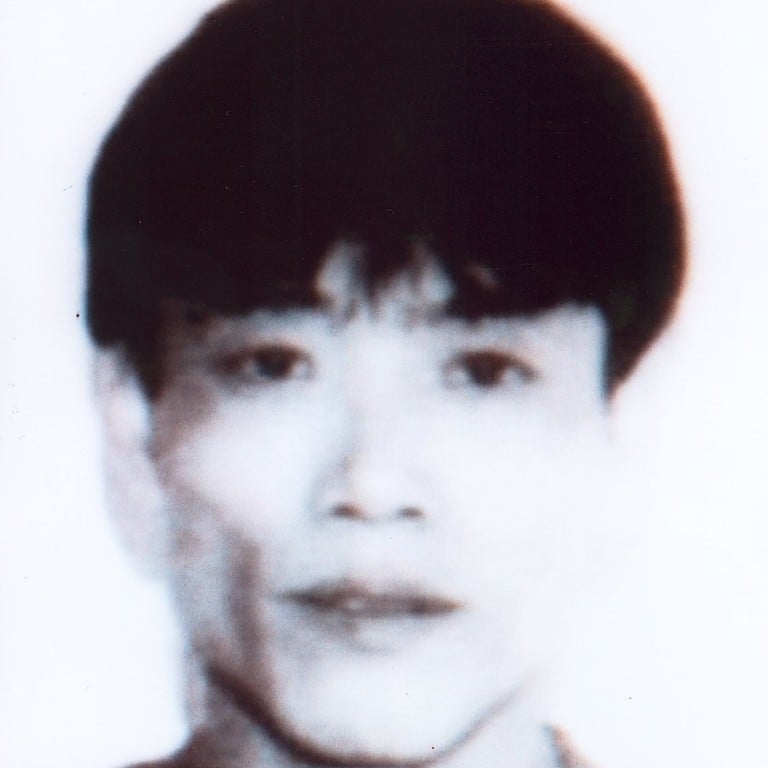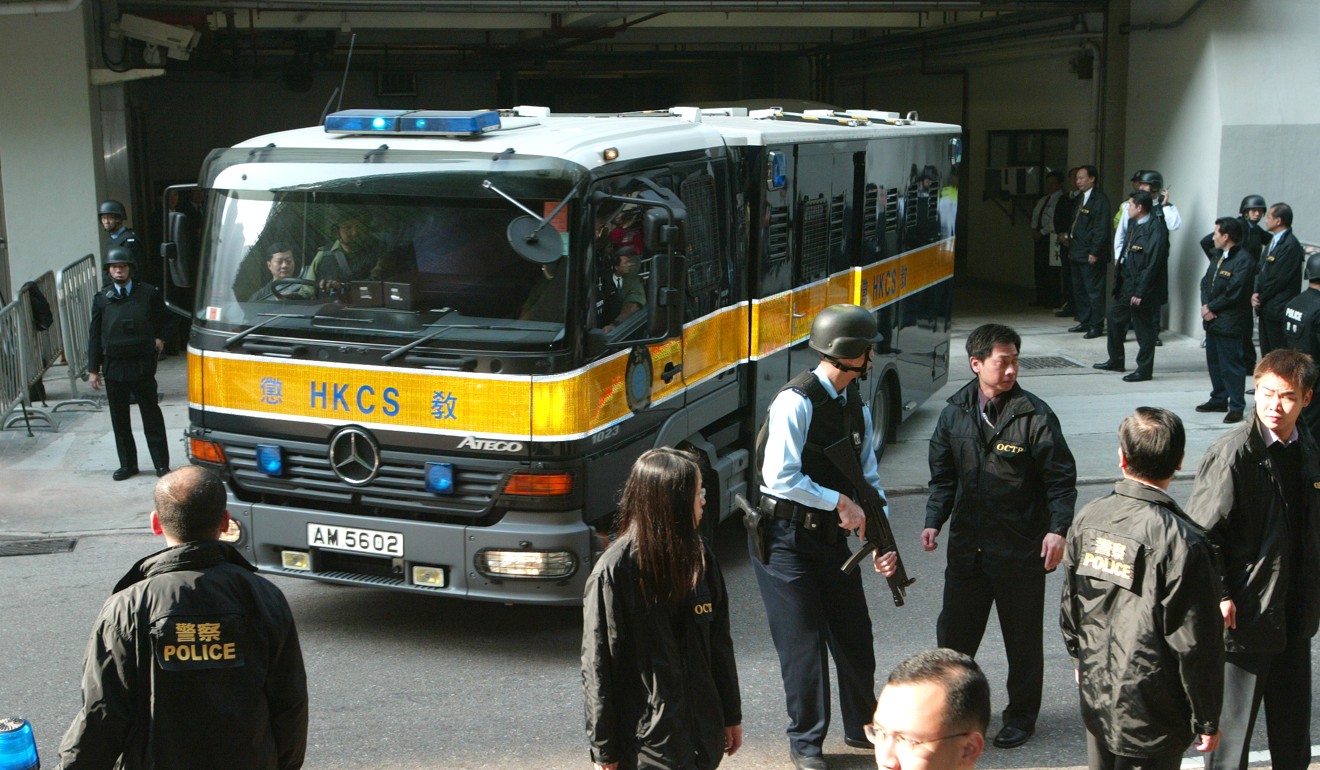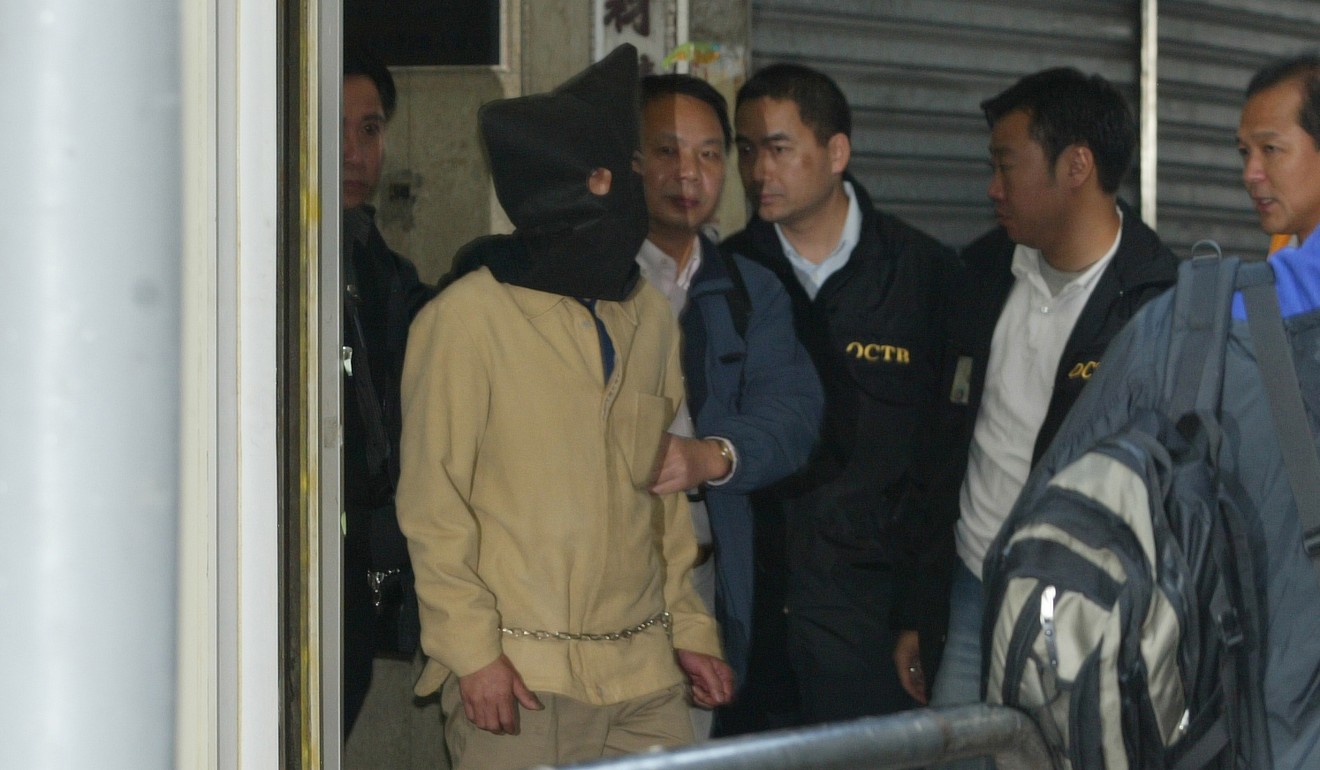
The last goodbye: Hong Kong’s ‘King of Thieves’ Kwai Ping-hung spends final night behind bars playing games and chatting to inmates
- Notorious gangster given fish and rice for last supper which he ate alone in his cell
- Kwai will be escorted to Hong Kong International Airport under heavy security and deported to the US
Kwai Ping-hung, the “King of Thieves” who has been in prison for 16 years, will bid farewell to fellow inmates on his last night in prison, before he walks free on Saturday and is deported to the United States.
The 59-year-old US passport holder, once Hong Kong’s most wanted gangster, is set to be released from the maximum security facility, Stanley Prison, in the morning and will be escorted under tight security to Hong Kong International Airport to take a flight to New York.
A government source told the Post that on their last day behind bars, most prisoners usually gather with others, shake hands and say goodbye during evening recreation time.
“Kwai is expected to do the same as he gets along with other inmates well. He made some friends there,” the source said.
On his last full day in brown prison garb with his name tag on it, Kwai was still required to work, but he had one last run around with his fellow inmates during the afternoon break.

Around 5pm, the former crime lord was served with fish and rice for his final supper behind bars, and instead of a big celebration, he ate alone in his own 80.7 square foot single cell.
Kwai is expected to spend around two hours of free time on his own, before the light goes out at 10pm.
Since Kwai was convicted in 2005, his life has been limited to a single cell with a plastic bed, a plastic desk attached to the wall, a plastic chair, and a sink and toilet made of stainless steel. His daily routine saw him waking up at 6.30am, having breakfast at 8am, and working for 3½ hours before lunch.
He had another working session in the afternoon before dinner and leisure time at 5pm. Cells are locked at 8pm and lights must go out at 10pm.
Kwai’s release has prompted law enforcement to be put on high alert, as the former crime lord was labelled “an extremely dangerous figure” by police.

The Post has been told that elite police officers from the Special Duties Unit (SDU), dubbed the Flying Tigers, will be on standby on Saturday. The former gangster will leave prison accompanied by Correctional Services Department staff, who will hand him over to immigration and police officers to escort him to the airport.

Also known as Guan Derong, Kwai, who came to the city illegally from China in 1980, was caught on Christmas Eve 2003 after the SDU broke into his Yau Ma Tei flat as he slept. Officers made the biggest seizure of firearms for nearly 30 years during the raid, and found a wide range of weapons, including shotguns, self-loading pistols, almost 900 rounds of ammunition, and seven grenades.
Not a single shot was fired during the three-hour raid as Kwai was literally caught napping. The arrest was described as “the best Christmas gift to Hongkongers” and brought an end to an era when larger-than-life criminals armed with AK47s turned Hong Kong’s streets into shooting galleries.

For all of his convictions, Kwai was handed a total jail term of 24 years in 2005. Another government source told the Post the gangster received a one-third reduction for good behaviour.
During the 1980s and 90s, Hong Kong was gripped by a crime wave that saw police battling heavily armed criminals on the streets of its busiest neighbourhoods, as many crime bosses from Guangdong province sneaked into the city to carry out high-profile robberies of jewellery shops. It prompted the force to expand its structure and strengthen its arms.
How Hong Kong gangster Kwai Ping-hung evaded capture for decades
Kwai was suspected of committing 20 armed robberies over the course of 30 years, including shooting and wounding two policemen in Mong Kok in 2001.
Then organised crime and triad bureau head, Andy Tsang Wai-hung – who later became the commissioner of police – posted a record HK$2 million reward for the capture of Kwai, and had Interpol issue a red notice, asking law enforcement worldwide to help find the wanted man.

